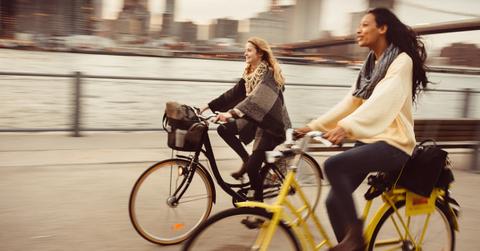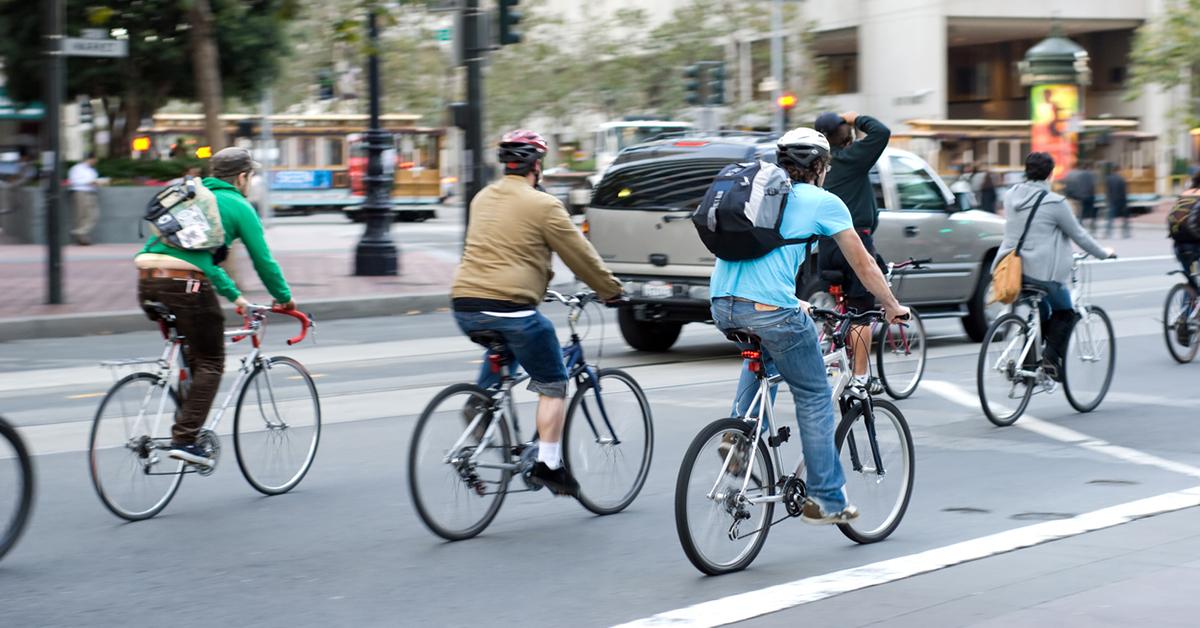New Study: Cyclists Exposed to Less Air Pollution Than Any Other Commuters on Busy Roads
A new study suggests that the “cleanest” way to commute in a city is to take a bike.
Updated Dec. 14 2018, 11:12 a.m. ET

According to new research out of the United Kingdom, cyclists are exposed to less air pollution during their commutes than their driving, walking, and mass transit-taking counterparts.
The Leeds-based research study founds that cyclists were exposed to 12M pollution particles during their journey — significantly less than the 19M particles experienced by bus commuters, the 20M particles by car commuters, and the 55M particles by walkers.
The research, led by James Tate of the University of Leeds, had all the subjects leave at the same time during a 4-KM rush hour commute last June; all the participants used “a high quality portable pollution-measuring equipment,” The Guardian reported. The experiment found that the cyclists had the shortest average commute time (11 minutes) compared to the 25 minutes by bus commuters, 21 minutes for drivers, and 35 minutes for walkers.
The researchers are now using their findings to encourage the building of cycle lanes in major cities, telling The Guardian that with dedicated bike lanes, those commuters would be exposed to even fewer pollution particles — by as much as one-fourth.
“On more congested routes, the cyclist would come out with the lower inhaled dose,” Tate explained. “Cycle lanes mean you can skip past the traffic.”

Of course, fast commute times and less exposure to air pollution are just two of the many benefits there are to biking to work; in the United States, for example, the transportation sector makes up nearly 30 percent of all greenhouse gas emissions (about one-fifth of all emissions in the states are from personal vehicles). A solo driver in an average vehicle releases about 1.2 pounds of CO2 per mile, compared to the minuscule amount put out through a biker’s respiration (about 0.7 grams).
In addition to the monetary benefits (the average cost of owning a car in the United States is around $8,500 per year), there are also countless health benefits associated with riding a bike to work. Cycling improves cardiovascular fitness, lowers blood pressure, builds muscle, and could even boost energy.